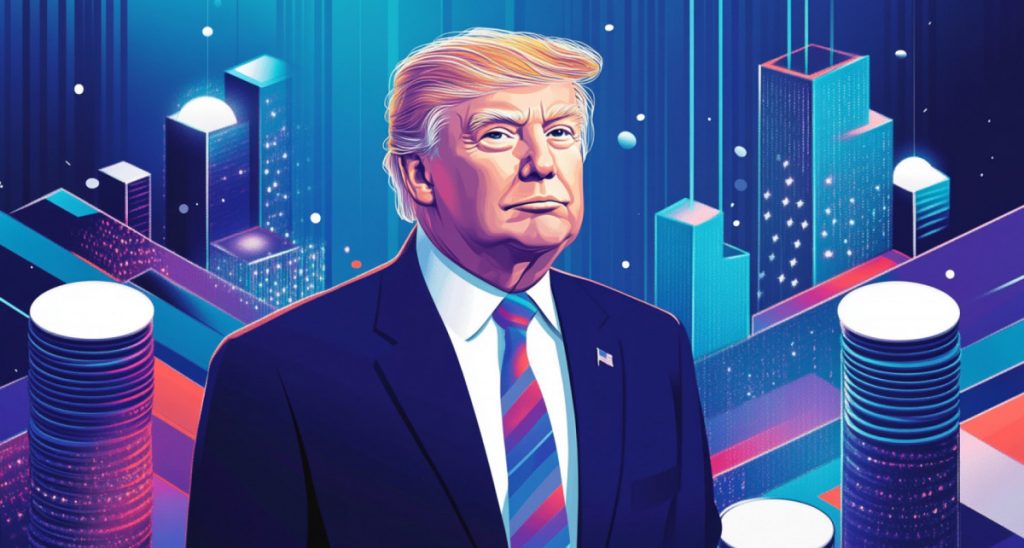What’s Next for Trump’s Expanding Relationship with Crypto?


In Brief
Trump’s deepening crypto ties — from Binance talks to meme coins and executive orders — could reshape U.S. crypto policy while blurring lines between politics and personal profit.

Donald Trump’s connection to the crypto world could intensify if reported discussions with Binance evolve into a formal partnership with the world’s leading cryptocurrency exchange.
According to recent reports from the Wall Street Journal and Bloomberg, these talks have the potential to link a major figure in digital assets with a U.S. president who has committed to transforming America into “the crypto capital of the planet.”
Talks with Binance
Trump has already backed executive orders favorable to the crypto industry and shown a commitment to supporting legislation that benefits the sector. He also holds interests in various crypto ventures, gaining from the rise in digital asset values. Reports reveal that ongoing discussions with Binance may involve a Trump family investment in the exchange’s U.S. division.
Additionally, former Binance CEO Changpeng Zhao, who pleaded guilty in 2023 to violating anti-money-laundering laws, is reportedly seeking a pardon. The talks also suggest potential collaboration on a stablecoin project involving Binance and World Liberty Financial, a crypto business connected to the Trump family.
Both Parties Deny a Deal
Both parties have denied any formal agreement. A Trump administration official told the Wall Street Journal that Steve Witkoff is in the process of distancing himself from business ties.
Binance CEO Changpeng Zhao also refuted any discussions regarding a business deal with World Liberty Financial or a potential pardon, clarifying on X that Binance had not purchased the company’s crypto token.
World Liberty, in turn, dismissed the reports as “unsubstantiated” without further elaboration. If a closer relationship were to form, it would significantly deepen Trump’s ties to the crypto industry, reinforcing his earlier promises to support the sector.
The Meme Coin Launch: A Conflict of Interest?
The launch of Trump’s official meme coins—TRUMP and MELANIA—on the Solana blockchain has raised concerns about potential conflicts of interest.
Just before his inauguration, the Trump team released these coins, with Fight Fight Fight LLC and CIC Digital LLC, both linked to the Trump Organization, owning 80% of the total supply, which is locked for three years.
This move was quickly followed by Trump Media & Technology Group’s (DJT) ambition to create a bitcoin exchange-traded fund (ETF) and invest up to $250 million in cryptocurrencies through a venture called Truth.Fi.
In addition to these projects, Trump and his family are involved in World Liberty, a 2024 crypto initiative. Trump himself is listed as the “chief crypto advocate,” while his sons, Eric, Donald Jr., and Barron, serve as “Web3 ambassadors.”
In return for their promotion of World Liberty, the Trump family’s LLC receives 22.5% of the project’s crypto tokens and 75% of any net revenue once the platform earns $30 million.
These ventures align Trump closely with the cryptocurrency sector, raising questions about whether such financial stakes might cloud his policy decisions. As both an influencer and a promoter in the space, his actions could potentially blur the lines between public service and private financial interests, making it a critical point of scrutiny moving forward.
Major Executive Orders
Since assuming office, Trump has made strides in fulfilling his promises to the crypto sector through two significant executive orders.
The first order prohibited the U.S. from developing a central bank digital currency (CBDC) and created a presidential task force dedicated to digital assets, laying the groundwork for broader initiatives.
The second order focused on the creation of a bitcoin reserve and a separate stockpile for crypto, which would be funded by seized and forfeited digital assets not yet sold by the government.
The order emphasizes that the digital asset industry plays a critical role in both the U.S. economy and its global leadership.
While some within the crypto community were initially concerned, Andy Baehr, managing director at CoinDesk Indices, reassures that the president’s actions may not be as drastic as they appeared.
Trump has also supported the development of a federal regulatory framework to facilitate crypto operations in the U.S., with the potential to strengthen connections to Wall Street. Recently, the Senate Banking Committee made progress on this by advancing stablecoin legislation.
On Thursday, the Senate Banking Committee took one step in that direction by advancing stablecoin legislation that would set rules for how bank regulators would oversee firms issuing such coins.
The SEC Backing Down
Binance, which faced several conflicts with the U.S. government during the Biden administration, received some relief under Trump’s second term. In March 2024, the SEC paused a civil lawsuit filed in June 2023, accusing Binance and its CEO Zhao of securities violations.
Earlier in 2023, Binance admitted to multiple legal infractions, including money laundering and violations related to sanctions, which led to a hefty $4.3 billion fine. Zhao agreed to pay $50 million and step down as CEO but retained his majority stake.
In April 2024, he was sentenced to four months in prison for violating U.S. anti-money laundering laws. Despite these setbacks, Binance recently secured its first institutional investment—$2 billion from Abu Dhabi-based investor MGX, paid in stablecoin.
Bitcoin As a Safe Haven?
The crypto market has shown resilience despite stock market crashes, suggesting a weakening correlation between the two. This shift indicates that investors may be turning to crypto assets as a safer alternative, especially as Trump’s tariffs could lead to a prolonged global trade war. Bitcoin’s role as a safe haven, historically seen during times of economic uncertainty, is becoming more prominent.
A similar trend was observed in 2020 when Bitcoin, after a pandemic-induced crash, decoupled from stocks and quickly rebounded, while traditional markets remained under pressure. This pattern supports Bitcoin’s appeal as a hedge against declining stocks and gold.
Trump, Crypto, and Politics
Trump’s deepening involvement in crypto highlights a growing intersection of politics and digital assets. As he navigates these connections, his actions could reshape both regulatory landscapes and his financial interests. The outcome of his crypto ventures may set a precedent for future political engagement in the rapidly evolving space.
Disclaimer
In line with the Trust Project guidelines, please note that the information provided on this page is not intended to be and should not be interpreted as legal, tax, investment, financial, or any other form of advice. It is important to only invest what you can afford to lose and to seek independent financial advice if you have any doubts. For further information, we suggest referring to the terms and conditions as well as the help and support pages provided by the issuer or advertiser. MetaversePost is committed to accurate, unbiased reporting, but market conditions are subject to change without notice.
About The Author
Victoria is a writer on a variety of technology topics including Web3.0, AI and cryptocurrencies. Her extensive experience allows her to write insightful articles for the wider audience.
More articles

Victoria is a writer on a variety of technology topics including Web3.0, AI and cryptocurrencies. Her extensive experience allows her to write insightful articles for the wider audience.


















































